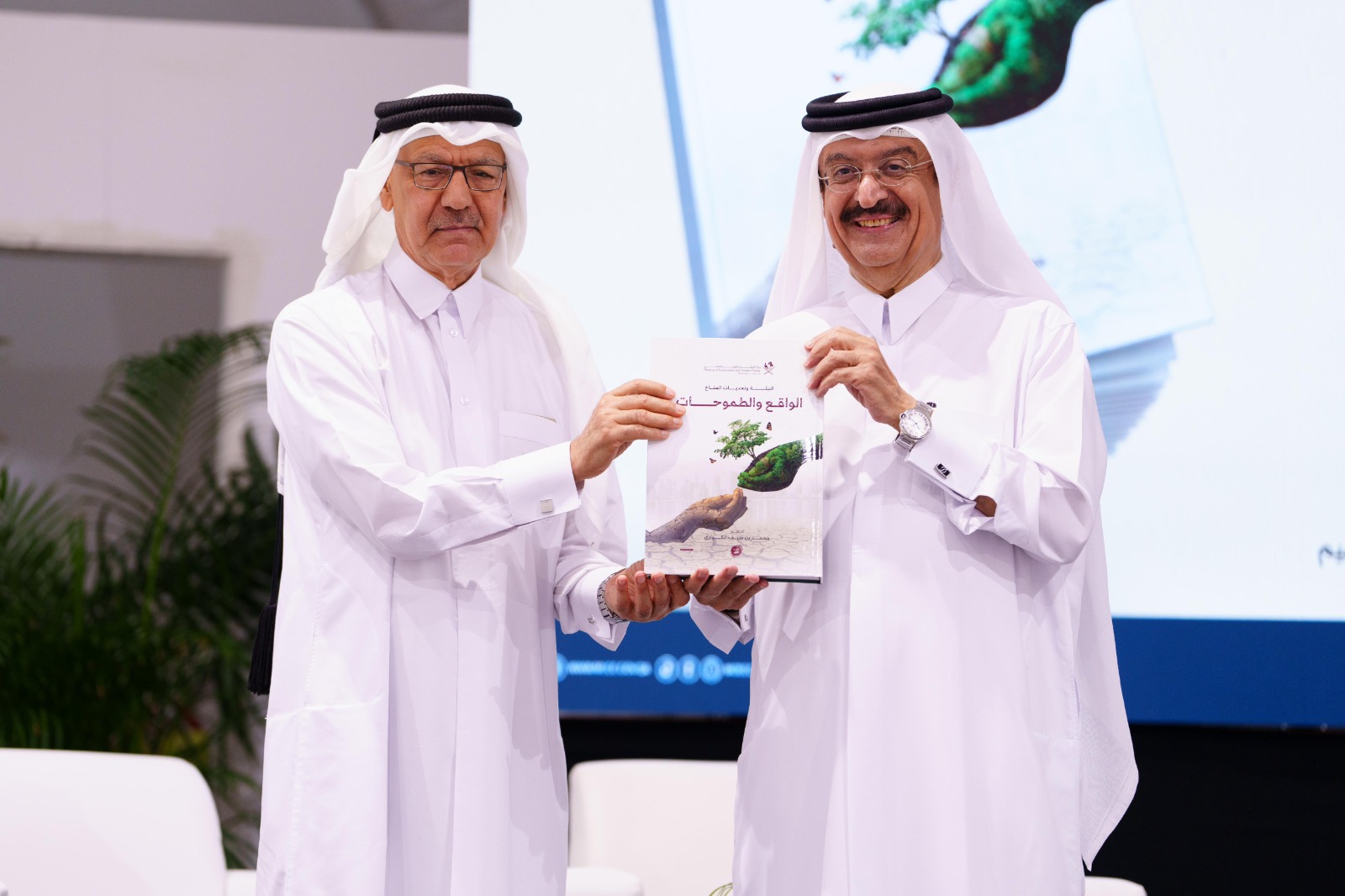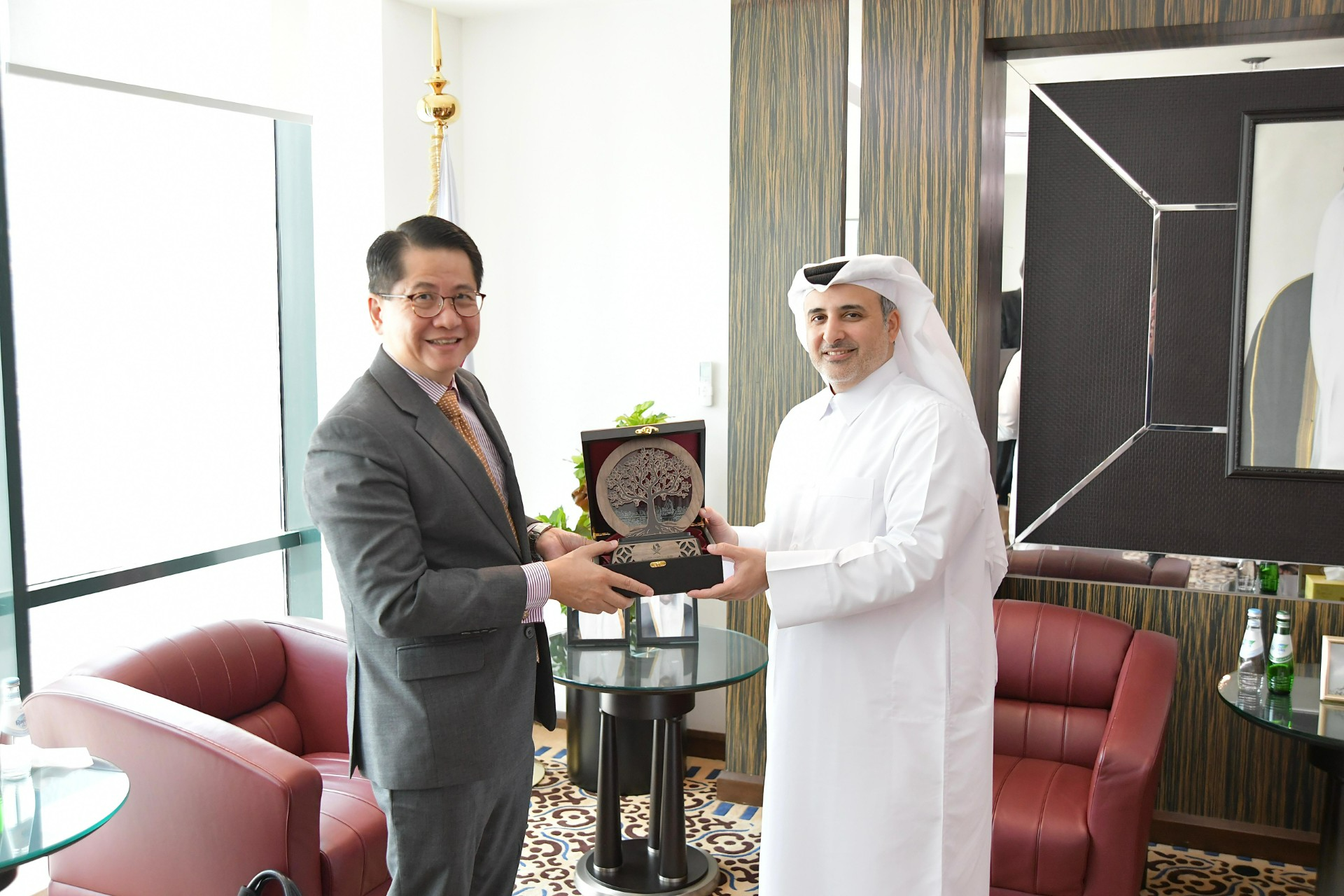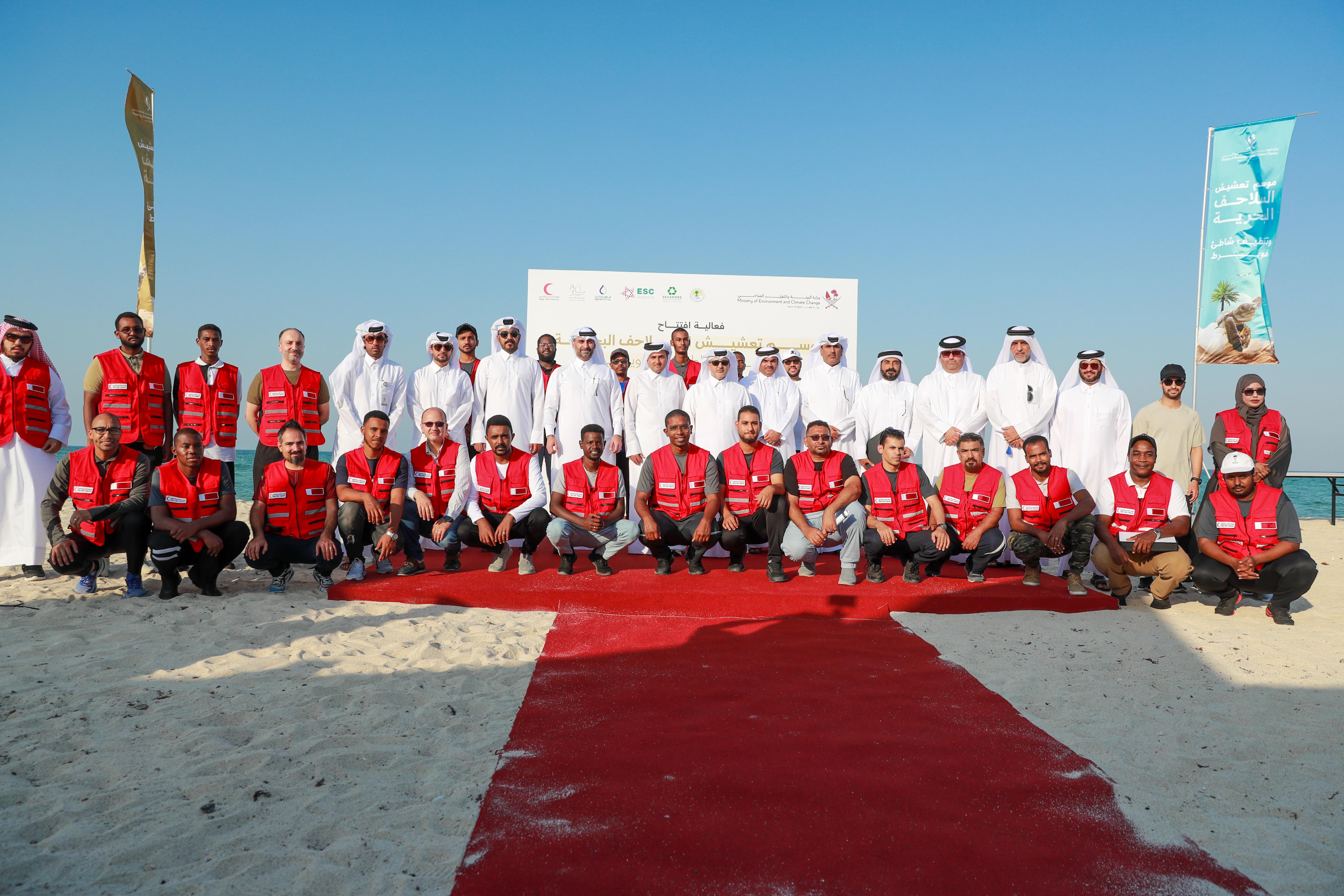
Within the activities of Expo 2023 Doha Horticultural Exhibition, the Ministry of Environment and Climate Change Inaugurates the “Environment and Climate Challenges: Reality and Ambitions” Book
The Ministry of Environment and Climate Change (MECC) launched this morning the “Environment and Climate Challenges: Reality and Ambitions” book by Dr. Mohammed Saif Al Kuwari, Engineering Consultant and Environmental Expert at the Office of His Excellency the Minister of Environment and Climate Change, at the Conference Hall of the Cultural District of Expo 2023 Doha Horticulture, in the presence of representatives of a number of local officials and academic bodies.
A panel discussion titled “Environment and Climate Challenges in Qatar and the Gulf” was also held during the inauguration ceremony. Speakers included Dr. Ali Abdulla Al Ibrahim, vice chairman of the Regional Network for Social Responsibility’s board of directors; Dr. Khadija Murad, an assistant professor at Qatar University; and Dr. Mohammed Abdullah Al Shayyab, an expert in environmental development planning at the Planning and Statistics Authority’s Strategic Planning Department.
The panel discussion included participation from Mr. Hamad Salem Al Hajri, Director of the Programs and Education Department at the National Human Rights Committee; Mrs. Maryam Al Hammadi, Director of the Culture and Arts Department at the Ministry of Culture; and Eng. Farhoud Al Hajri, Executive Director of the Friends of the Environment Center.
In his opening speech at the panel discussion, Dr. Mohammed bin Saif Al Kuwari stated that the launch of the book “Environment and Climate Challenges: Reality and Ambitions”, comes on the occasion of Expo 2023 Doha Horticulture, and in implementation of its slogan “Green Desert, Better Environment”, pointing out that the book focuses during its five chapters, on the definition of the environment from several aspects, as well as the publication provides an accurate scientific explanation of the causes of global warming and its negative effects on the planet, pointing out that the book puts before the community a set of recommendations that contribute to adaptation and mitigation of global warming, based on the vision of scientists, researchers and experts specialized in the environment and climate sciences.
At the end of his speech, the author of the book thanked His Excellency Dr. Abdulla bin Abdulaziz bin Turki Al-Subaie, Minister of Environment and Climate Change, for his unlimited encouragement and support for scientific research in the field of climate change matters, expressing his gratitude for the sincere efforts made by the Ministry of Environment and Climate Change to spread environmental awareness among members of the local community.
Social recommendations
In his research paper, Dr. Ali Al Ibrahim, Vice Chairman of the Regional Network for Social Responsibility, stressed the importance of rapid action for all countries in the world to reduce greenhouse gas emissions, noting that research has confirmed a rise in the earth’s temperature by two degrees Celsius, which will lead to new waves of severe droughts, devastating floods, forest fires, and storms.
Dr. Ali Al Ibrahim provided a series of recommendations that help both individuals and society play a role in resolving the climate crisis. These included raising public awareness of the need to decrease carbon pollution, promoting the use of renewable energy sources, pursuing alternatives to polluting modes of transportation, installing solar panels on residential roofs, and switching to a vegetarian diet.
He also recommended the need to work on purchasing sustainable products to reduce the carbon footprint of food and to expand the cultivation of trees and plants in homes.
Climate challenges
In a parallel context, Dr. Mohammed Al Shayyab, Planning Expert at the Planning and Statistics Authority, pointed out that climate change is one of the biggest environmental challenges facing humanity, and it is a unique challenge for the Arab Gulf countries, which live in an arid natural environment and enjoy economic wealth that depends heavily on oil and gas.
As for the causes of climate change, Dr. Khadija Murad, Assistant Professor at Qatar University, emphasized that these include changes in solar activity, volcanic eruptions, and human activity that primarily relies on burning fossil fuels like coal, oil, and gas.
A set of practices have been developed to mitigate the impact of climate change on the environment in the Arab Gulf countries, which are to increase green spaces “gardening,” focus on renewable energies as alternatives to fossil fuels, such as solar and water energy, and focus on the circular economy to ensure a sustainable environment, as well as the use of technologies to reduce resource consumption and energy to reduce greenhouse gas emissions.




